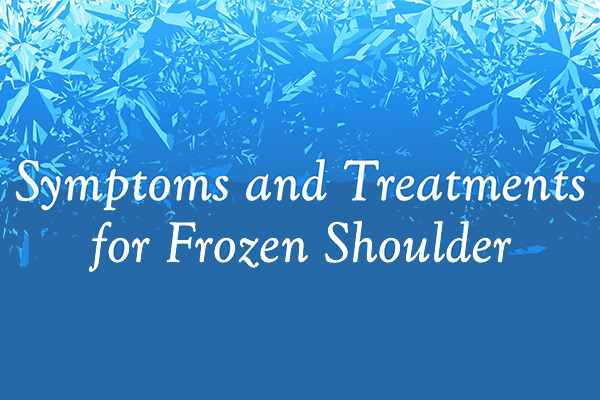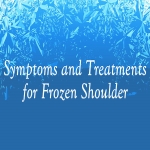
We may not think about freezing in the fall, but it is possible. Frozen shoulder can occur at any time of the year.
Your shoulder is a ball and socket joint that is surrounded by strong, smooth connective tissue, which provides us with an incredible range of motion. This capsule of smooth tissue can become thick and stiff, restricting movement of the shoulder. This condition is known as adhesive capsulitis or frozen shoulder.
Symptoms of frozen shoulder include a dull, aching pain in the shoulder, and the inability to move the shoulder on your own or with help. These symptoms appear gradually and worsen over a period of months.
The exact cause of frozen shoulder is unknown. It typically affects people ages 40-60, and women are more likely to experience this condition than men. Long periods of immobilization as well as some diseases, such as diabetes, also increase the risk of developing frozen shoulder.
There are three stages of frozen shoulder:
The Freezing Stage: During the freezing stage, there is pain with any movement. Your range of motion is limited and may worsen at night.
The Frozen Stage: During the frozen stage, the pain will subside. However, the shoulder continues to be stiff and will not function properly.
The Thawing Stage: During the thawing stage, the shoulder will begin to move and gradually regain function.
We diagnose frozen shoulder by looking at your range of motion – both active and passive – and by assessing the presence of pain. Active motion is the range of motion you can create by moving your arm. Passive motion is the range of motion you have when someone else is moving your arm. X-rays or an MRI may be ordered to rule out any other potential causes for your pain.
The goal of treatment for frozen shoulder is to decrease pain and increase motion. Anti-inflammatory medications, ice/heat treatments, and steroid injections can all help to decrease pain. Physical therapy is the main treatment indicated for frozen shoulder to restore range of motion. The intentional use of anesthesia and manipulation of the shoulder muscles can also aid in restoring function.
Although the exact cause of frozen shoulder is unknown, we can effectively diagnose and treat frozen shoulder. If you find your shoulder is freezing up, let us help you thaw it out as quickly as possible and get you back to your everyday activities.
Dr. Ryan Colley attended medical school at Midwestern University Arizona College of Osteopathic Medicine. He completed a residency in orthopedic surgery at Ohio University, studying all orthopedics fields, including trauma, joint replacement, sports medicine, pediatrics, and hand surgery. Dr. Colley focuses on all aspects of upper extremity joint replacement, reconstruction, trauma, and arthroscopy. He also performs robotic-assisted total knee replacement. Dr. Colley has authored several publications and book chapters. He takes a holistic approach to improve the quality of life for his patients. In his free time, Dr. Colley enjoys time with his wife and two children. They love to hike, fish, snowboard, and travel.





 Book an Appointment
Book an Appointment
 Patient Portal
Patient Portal